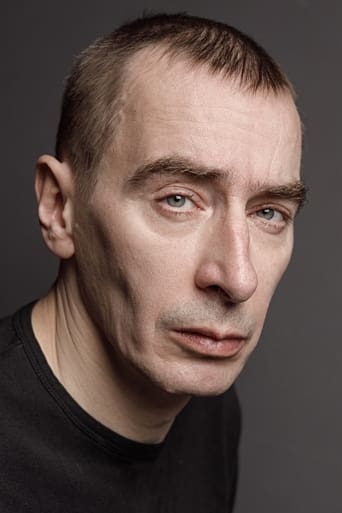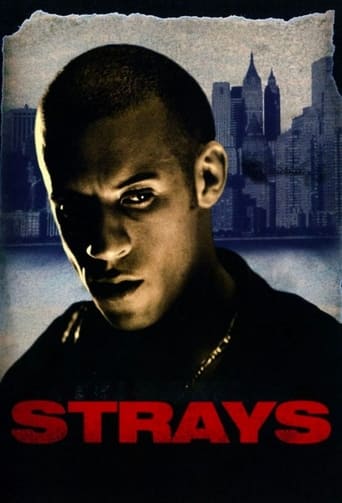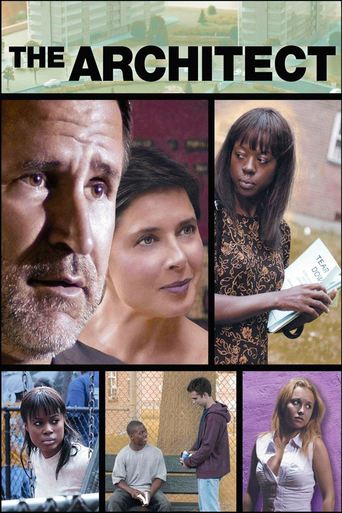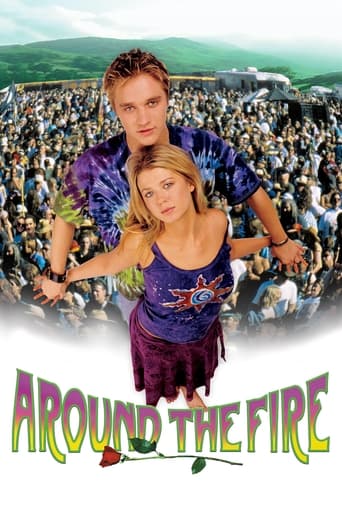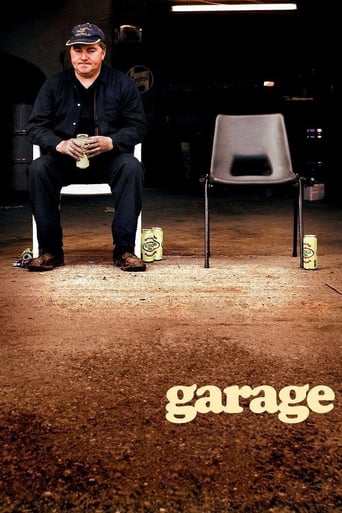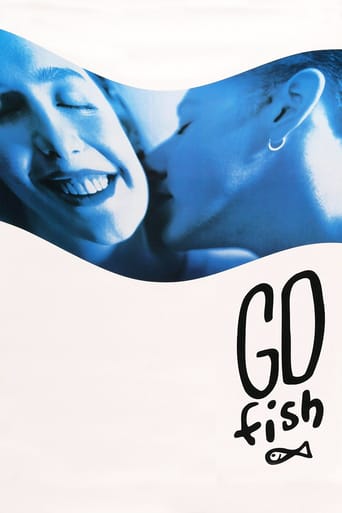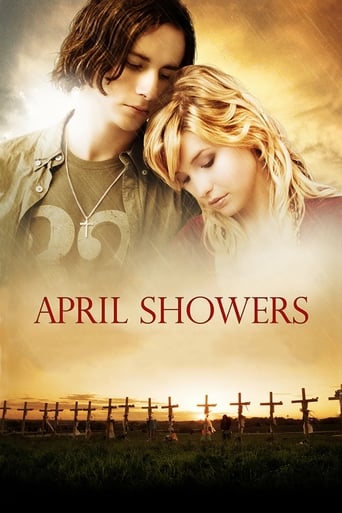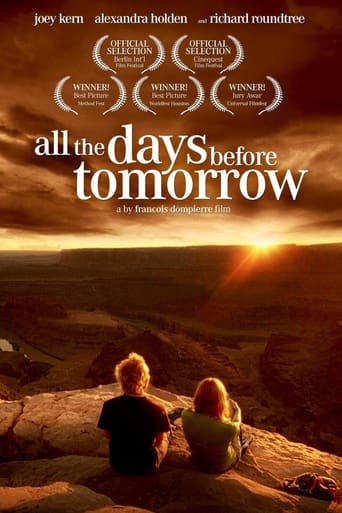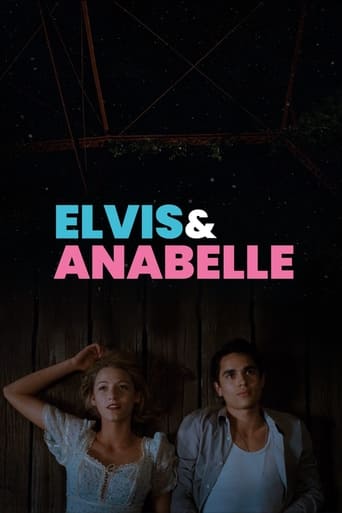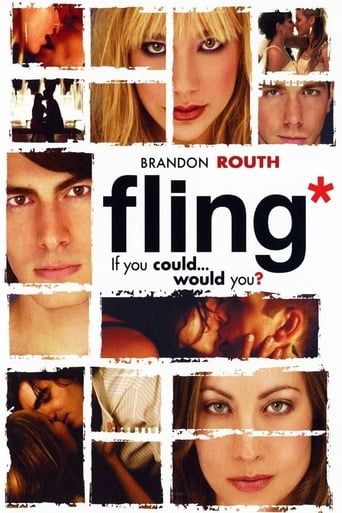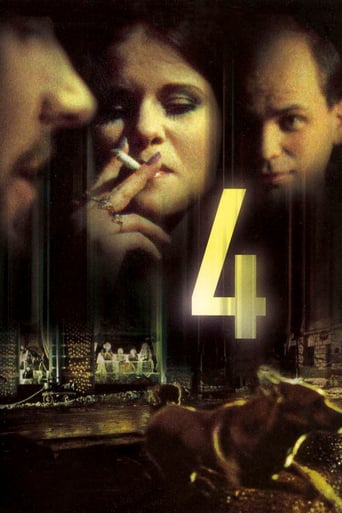

4 (2005)
Two men and a woman happen to meet in a bar. We learn from their conversations both the intriguing and banal details of their lives. But is anyone really telling the truth?
Watch Trailer
Cast


Similar titles
Reviews
I found this film after I had read and enjoyed a novel by Vladimir Sorokin, the scenarist of "4." What I got was an interesting and certainly memorable sight, if not necessarily easy to process or digest all at once. It's almost possible to see (or, perhaps, imagine) where part of them film is drawn from the literary milieu of the novelist Sorokin, and where it leaves that real of the power of words and moves into an area where arresting cinematic images are the order of the day. There is a an excellent basic premise for a film here, and one that could go any number of ways -- three lonely people are a bartender meet late at night in a bar; the patrons order drinks and begin to tell stories about their lives that seem to be completely fabricated. And then they start to doubt each other's stories. This part of the film is precisely paced and acted, heavily atmospheric, and very tightly and fascinatingly written, with sparking dialog. After this section, though. The tone shifts dramatically, and we follow the three protagonists home to different lives that are shown in a slow-paced way with many quiet shots that linger on disparate details. Most dramatic seems to be the life of the rough-dealing meat salesman who comes home to a melancholy, overly-meticulous, father petrified of germs. But we follow the call-girl mostly, and the film dwells on the squalor of her setting as she takes the train to small village to attend the funeral of a girl who led the making of bread-chewed dolls to sell. The following images of massed geriatric and bread=chewing and pig- eating are very striking and maybe deliberately unpleasant. And to be perfectly frank, the digression that the film leaves its opening scenes for is just less interesting. As it stands, this film contains both strikingly committed surrealism and outré imagery in its later two fourths, and mysterious, deftly written drama around themes like the superficiality of the knowledge we have of the world around us and the need to sensationalize our lives for others in the first quarter. I can't help but feel like I'd had been more satisfied if it had continued in its first vein.
I must say that the opening sequence is just stunning and brings you in a visually outstanding atmosphere. Nevertheless, it seems to me that the quality of the surface is not completely reflected on the inside.Characters are well played but I wish they had something more interesting to talk about. The dialogues are probably just what they are meant to be: excuses to chat up someone in a bar and give your opinion about what's going on in your country... The film moves from the city and its stories, to the outskirts and its rumours. Alcohol, boredom and desperation find always a way to be present. This movie is a bit like "City of god", without the effort of a positive story-line. What I've seen so far seems a fake (and gloriously good-looking) scoop on modern Russia. I think that the photography and the sound-design deserve a special mention. I also notice a fine creativity in some concepts (dogs biting dolls) but I still feel the lack of something.I think that 6/10 is well deserved because the movie is well crafted but I definitely hope that Khrzhanovsky's next one will be better.
First I want to address some of the inane reviews here that are moaning about the lack of narrative, or more inane still, the lack of "plot"?? What can I say to that? You know SFA about cinema (as an art form) by the sounds of it and would probably be better off sticking to Hollywood fare. If you have a social conscience and know something about the underbelly of capitalism you will 'get' this movie - though a sense of humour helps (something it seems some of these reviewers do not have). From a technical point of view I was most impressed by the use of sound in this work and would recommend it to any music and image student looking for a good example of creative sound usage in film making. Put simply, I liked this film, I found it touching, I was moved, what more can I say?
Firstly, this film was a gorgeous object. The way shots were set up and filmed deserve praise. Perhaps its nothing new to explore the grotesqueness of the babushka's wrinkled, hollow faces, or the eating etiquette (or lack there of) of peasants in close quarters on a train. I kept thinking someone must have just been watching a Fellini movie marathon-- or even some Sergio Leone spaghetti western before filming these scenes. However, behind every image that seemed repulsive or bleak or even hackneyed, I could not stop watching or being in awe that I was seeing such beauty. The sound-- not just the music and the singing and wailing of the characters, but the sound scape of each scene-- trains, drills, boots marching in thick mud, insect chirps-- had me watching the movie with the volume way up. The story was initially engaging, and as many of the reviewers here state, it seemed to unravel from a tightly set-up premise into some sort of meditation-- which was fine with me. Granted, I was confused at times, wondering where Marina was going after watching her trudge through the decaying Russian countryside for fifteen on-screen minutes, or what revelation would come out of Zoya's wake scene or the drunken feast scene. It was challenging to watch it all in one sitting, solely, i think, because most movies have trained us--definitely me- to look for action-reaction, immediate gratification in their storytelling. I had to view this two hour movie in three increments. It was well worth it. I'm not sure what everything means: is Marina one of the four "Doubles", one of the diseased ones that her drinking partner in the bar described? What is the significance of the dogs verses the machines? What changes so that Marat begins selling ground beef (thats incidentally nine years old)? I don't know, and really, does it matter? I kept thinking of "Amores Perros" as I watched "4": the dog motif, the intertwined stories, the life-altering connections to strangers, the revelatory windows on a culture which both these movies are. But "4" seems rougher, less slick and more of a feat to have completed. The voyeur in me was very excited to see two versions of the female body. The sisters naked in the sauna contrasted so deeply with the old crones' drunken striptease and breast-play, not only for the obvious reason that younger breasts and flesh are more aesthetically pleasing than the expired, sagging skin of aged peasant ladies without moisturizer, but also because, even with their taut beauty, the younger women seem to find no pleasure whatsoever in their bodies-- one selling hers even-- while at least the babushkas find humor and even delight in what is under all those layers of raggedy clothes. Bravo to the women who agreed to film those scenes!


